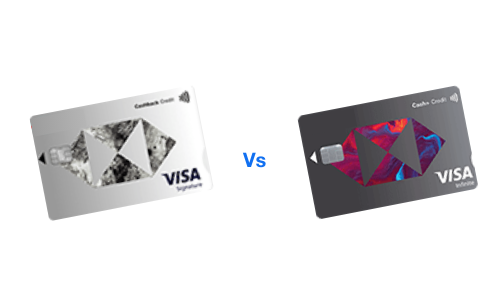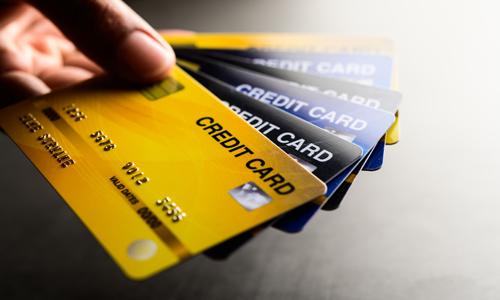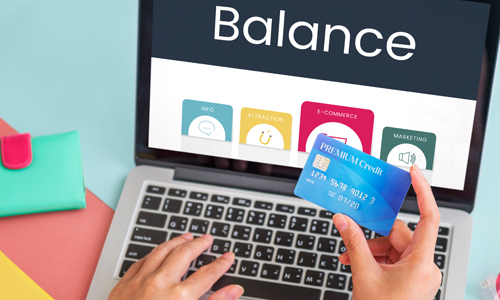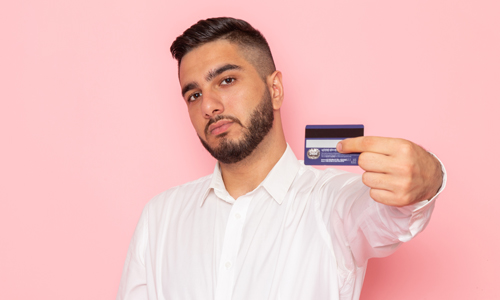Unused Credit Cards: Keep them or Cancel them?

Credit cards have become an inseparable part of our day to day life, whether you are a student or a working professional this financial tool has made its way into almost every pocket. According to a survey published by a credit card provider, approximately fifty percent of total transactions made online comprise of credit card payments.
Most of us tend to add credit card into our wallets by getting tempted by the lucrative offers provided by the companies to expand their market share. However, sooner or later we realize that we’ve not been making use of these cards and are often tempted to close the unused account. Now the question arises if you have an unused credit card what should you do with it? Should you close the account or cancel them?
A lot of credit card users have come across this question lately, and therefore we decided to come up with an informative blog that will help you to get the answer to this question. In this thread, we will shed light on ideally what should be done with unused credit cards and how to do it. Furthermore, we explain all the pros and cons associated with keeping unused credit cards, so stay tuned.
Impact of Cancelling Unused Credit Cards on your Credit Score
It might sound silly when somebody tells you not to cancel your unused credit cards specifically in the case when you think cancelling the tool will prevent you from overspending. Technically, when you close your account or cancel your unused credit card you can negatively impact your credit rating. This is what we’ll be discussing in this section of the article.
If you are familiar with the technical terminology of credit cards and score you would have definitely heard of credit utilization. It is defined as the total amount of debt you have under your name with respect to your total credit limit at a given instance. Ideally, the lower your credit utilization score is better it is for your credit score and rating. The primary reason behind this is that it acts as a marker that you’ve not been maxing out your credit cards and have managed to take care of your credit limit and outstanding debts.
Closing your credit card account directly impacts the amount of available credit. To understand credit utilization and its impact on your credit score and rating let us take a quick look at an exemplary scenario. Suppose you have two credit cards with a credit limit of AED 2000 and the second one with AED 3000 so in total, you have a total credit limit of AED 5000. Now, if you have an outstanding debt of AED 1000 for both of your credit cards combined then the credit utilization rate for your account will be 20%.
Now if your outstanding debt of AED 1000 balance is higher on the card with a limit of AED 3000 and you decide to close the other one. As a result of this now your total credit limit will drop to AED 3000 from AED 5000 and at the same time your credit utilization will shoot up to 33% from 20%. This change in your credit utilization rate will affect your overall credit score negatively as CUR comprises 30% of the credit score.
According to experts one should try and keep their credit utilization ratio close to zero for maintaining a decent credit score.
Decreased Age of your Active Credit Accounts
Another major factor that constitutes about 15% weightage of your total credit rating is the period or age of your active credit accounts. Closing your credit accounts, or cancelling the credit cards that have been with you for the longest period impact the age of your active credit accounts in turn affecting your credit score negatively.
Considering the example mentioned above let’s say the card with a credit limit of AED 2000 was 5 years old and the second one with the limit of AED 3000 was 2 years old. Closing the card with AED 2000 means that your remaining credit history will reflect a period of only 2 years instead of 5 years. In order to maintain a decent credit, score you need to ensure that your oldest account is active.
Scenarios to Keep your Unused Credit Cards
You might be thinking are there any scenarios where keeping your unused credit cards can benefit you? Yes, there are some situations where keeping your unused credit cards can help you. The most common situation where this strategy will help you is if you are applying for a mortgage or any other type of loan.
Keeping unused credit cards will help you to maintain and reflect a decent credit history and score which will increase the probability of getting the loan approved. You can simply review your credit history, score, and identify the oldest operating account. This strategy will turn out to be smart when you’re planning to close your old account which will eventually impact your credit score negatively.
If you’ve been tempted to spend with your credit card you can simply place the card in a place that is very difficult to access. Secondly, the key to prevent overspending is self-control and discipline. With the right habits, you can prevent unnecessary spending and maintain a healthy credit score. You can switch your payments to cash which will prevent you from wrecking your credit score.
How to Cancel an Unused Credit Card
A common question amongst the minds of a lot of people is that how do we close an unused credit card account? Can it be done online? Can I do it offline? Is there a procedure? Or does it vary from provider to provider?
The first and probably the most important step in closing your unused credit card is requesting your provider to mention in writing that there are no dues under your name or account. You can write an email or contact your credit card provider via their helpline number. As a user one needs to understand that you just can’t simply cancel an unused credit card by splitting it into different pieces or just by simply not using it. This can lead to some serious repercussions and impact your credit score.
Very often, if you don’t use your credit cards for prolonged periods credit card companies call and write you informing you that if you continue to remain inactive on the account your card will be cancelled by the provider. Once you’ve given a confirmation to your provider that you don’t want to use the card anymore your account will be reviewed formally followed by a closure.
In a Nutshell
Keeping your credit card accounts active for the long term is a suitable strategy if you are looking forward to getting a loan. Before you go ahead and close your account make sure you indulge in a thorough analysis centred on the age and the credit limit of the account. Credit cards can be your constant companion in your financial journey if used responsibly and correctly. However, incorrect and irresponsible use can lead to serious repercussions which can not only affect your financial well-being but also your credit score and rating.
More From Credit Cards
- Recent Articles
- Popular Articles

















